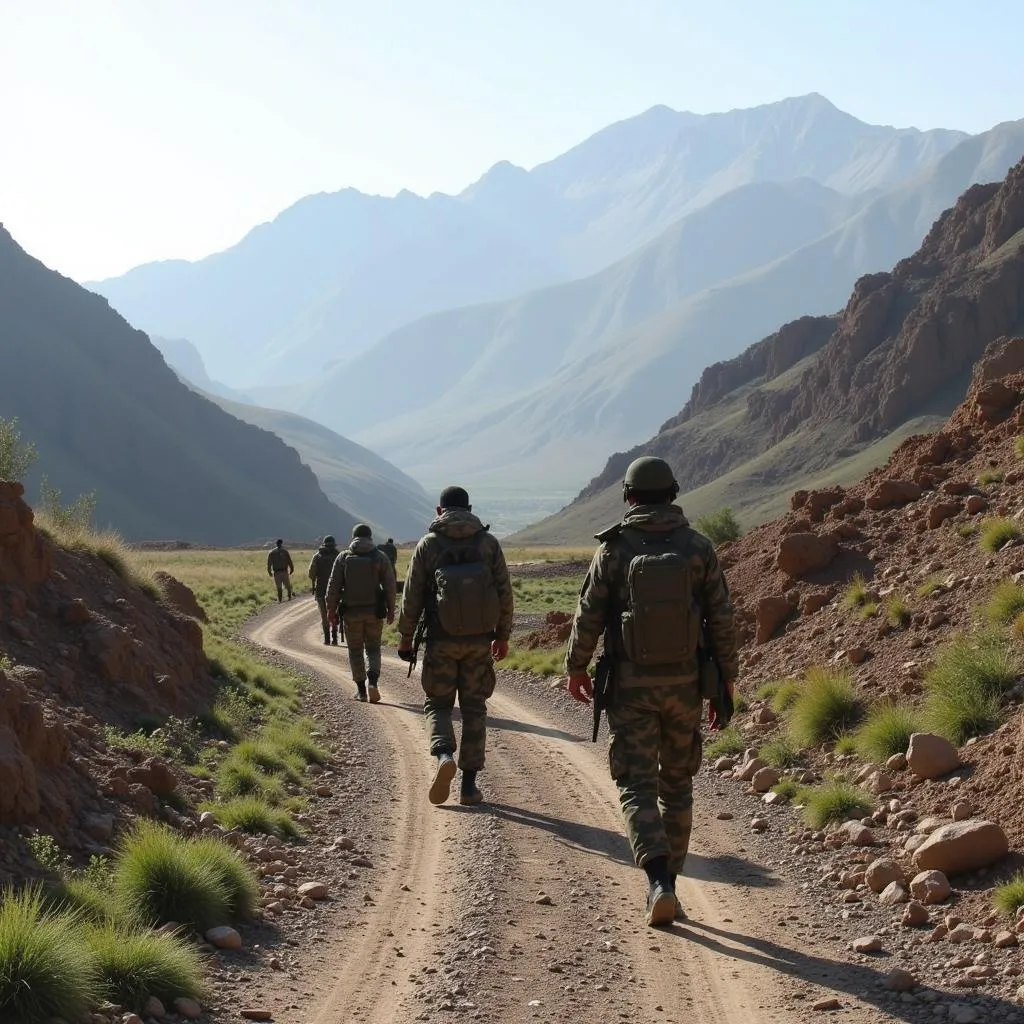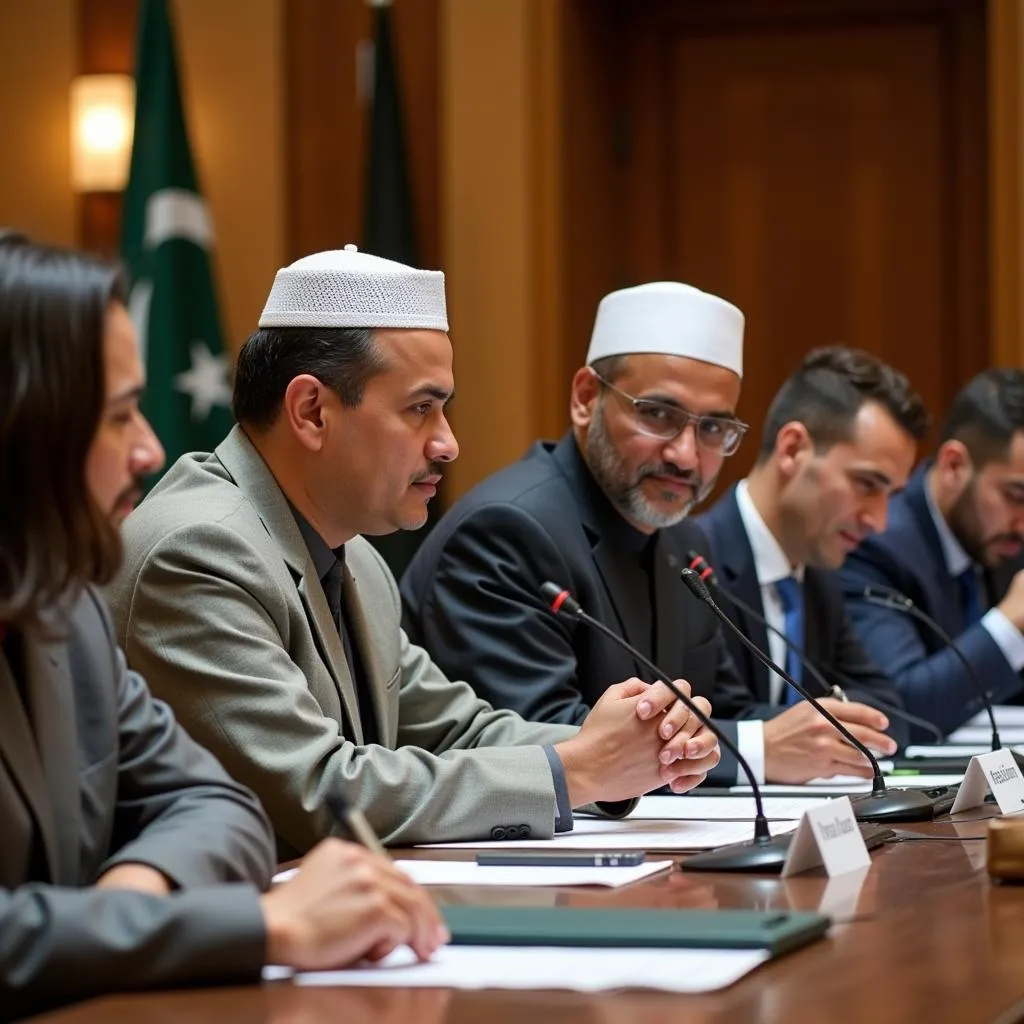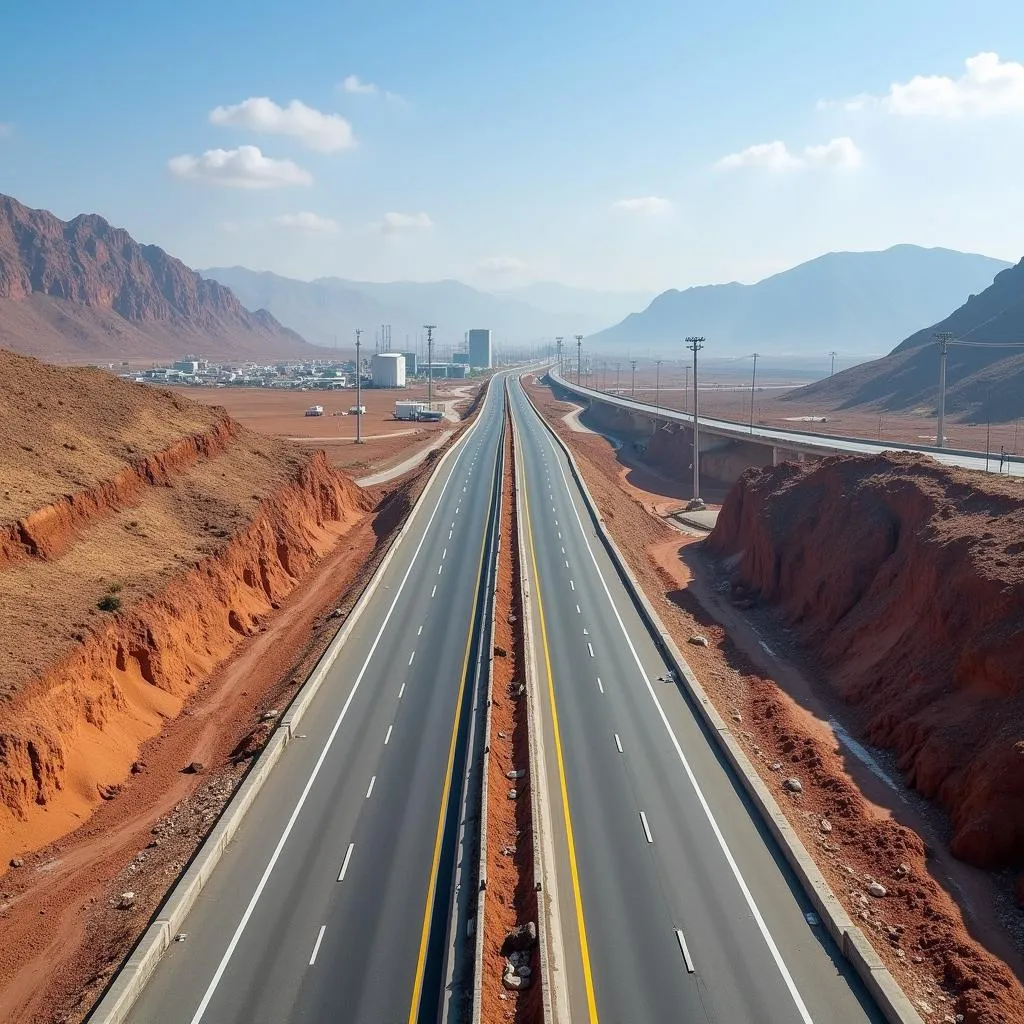The foreign policy of Pakistan, much like that of any nation, is a complex tapestry woven from a multitude of factors. These determinants, ranging from geographical realities to ideological aspirations, interact and influence each other, shaping the country’s actions and reactions on the world stage. Understanding these driving forces is crucial to grasping the nuances of Pakistan’s international engagement.
Geography: A Cornerstone of Pakistan’s Foreign Policy
Pakistan’s geographical location is perhaps the most enduring factor shaping its foreign policy outlook. Nestled at the crossroads of South Asia, Central Asia, and the Middle East, Pakistan occupies a strategically significant position. This unique location has historically made it a linchpin in regional dynamics, influencing its relationships with neighboring countries and global powers.
The Northwest Frontier: A Legacy of Security Concerns
Pakistan’s long and porous border with Afghanistan has been a source of both opportunity and concern. The historical flow of refugees, trade, and cultural exchange has been overshadowed by security challenges emanating from the Afghan side. The instability in Afghanistan, particularly after the Soviet invasion and subsequent conflicts, has had a profound impact on Pakistan’s security calculus, shaping its policies towards its western neighbor and the broader region.
 Pakistan-Afghanistan border security
Pakistan-Afghanistan border security
The Eastern Front: A Complex Relationship with India
The eastern border with India, marked by historical baggage and unresolved disputes, remains the most significant determinant of Pakistan’s foreign policy. The Kashmir conflict, a long-standing territorial dispute, continues to cast a long shadow on bilateral relations. The security dilemma arising from the rivalry with India has led to a significant allocation of resources towards defense, influencing Pakistan’s economic trajectory and diplomatic maneuvering.
The Arabian Sea: A Gateway to the World
Pakistan’s coastline along the Arabian Sea provides it with strategic access to vital maritime routes. The Gwadar port, developed with Chinese assistance, further enhances Pakistan’s geostrategic significance, positioning it as a key player in the Indian Ocean region. This maritime dimension adds another layer of complexity to Pakistan’s foreign policy, as it seeks to balance its interests in the region with those of global maritime powers.
Ideology and Identity: The Pillars of Pakistan’s Foreign Policy
Beyond geopolitical realities, Pakistan’s foreign policy is deeply intertwined with its ideological foundations and national identity. As a nation founded on the principles of Islam, Pakistan’s worldview is often framed through the lens of its faith. This ideological underpinning influences its engagement with the Muslim world, its stance on international issues concerning Muslims, and its efforts to project itself as a leader in the Islamic bloc.
Pan-Islamism and the Muslim Ummah
Pakistan has consistently advocated for the unity and solidarity of the Muslim world, often framing its foreign policy in the context of the ‘Ummah,’ the global Muslim community. This pan-Islamic outlook has led Pakistan to forge strong ties with Muslim-majority countries, particularly in the Middle East. It has also resulted in Pakistan playing an active role in organizations like the Organization of Islamic Cooperation (OIC), seeking to advance the interests of the Muslim world on the international stage.
 Pakistan's participation in the Organization of Islamic Cooperation
Pakistan's participation in the Organization of Islamic Cooperation
Identity Politics and Domestic Considerations
Domestic political dynamics and public sentiment also play a crucial role in shaping Pakistan’s foreign policy. Public opinion, particularly on issues related to India, Kashmir, and the Muslim world, can exert considerable influence on the government’s foreign policy decisions. This interplay between domestic politics and foreign policy often results in a delicate balancing act, with the government navigating between national interests, ideological commitments, and public expectations.
Economic Imperatives: Shaping Pakistan’s Foreign Policy Choices
Economic considerations have increasingly become a driving force in Pakistan’s foreign policy. The pursuit of economic growth and development has led Pakistan to prioritize relationships with countries that offer trade opportunities, investment, and financial assistance. This pragmatic approach is evident in Pakistan’s growing economic ties with China, the Gulf states, and other key economic partners.
The China-Pakistan Economic Corridor (CPEC): A Game Changer
The China-Pakistan Economic Corridor (CPEC), a multi-billion dollar infrastructure and development project, exemplifies the growing nexus between Pakistan’s economic interests and foreign policy. CPEC, a flagship project of China’s Belt and Road Initiative, has further strengthened Pakistan’s relationship with China, making it a cornerstone of Pakistan’s foreign policy outlook.
 China-Pakistan Economic Corridor (CPEC) project development
China-Pakistan Economic Corridor (CPEC) project development
Balancing Act: Navigating Regional and Global Power Dynamics
Pakistan’s foreign policy is also shaped by the need to navigate the complex interplay of regional and global power dynamics. As a country seeking to secure its interests in a volatile geopolitical landscape, Pakistan engages in a constant balancing act, forging alliances and partnerships that best serve its national interests. This often involves navigating the competing interests of major powers like the United States, China, Russia, and regional players like Saudi Arabia and Iran.
Conclusion: The Evolving Landscape of Pakistan’s Foreign Policy
The determinants of Pakistan’s foreign policy are constantly evolving, reflecting the dynamic nature of the international system. From its geographical realities to its ideological aspirations, economic imperatives, and the need to navigate global power dynamics, Pakistan’s foreign policy is a complex interplay of multiple factors. Understanding these driving forces is essential to deciphering the complexities of Pakistan’s international engagement and its role on the world stage. As Pakistan continues to evolve as a nation, its foreign policy will undoubtedly adapt to new challenges and opportunities, reflecting the country’s aspirations for security, prosperity, and its place in the global order.
For any inquiries or assistance regarding news and information, please contact us:
Phone Number: +923337849799
Email: news.pakit@gmail.com
Address: Dera Ghazi Khan Rd, Rakhni, Barkhan, Balochistan, Pakistan
Our dedicated customer support team is available 24/7 to assist you.